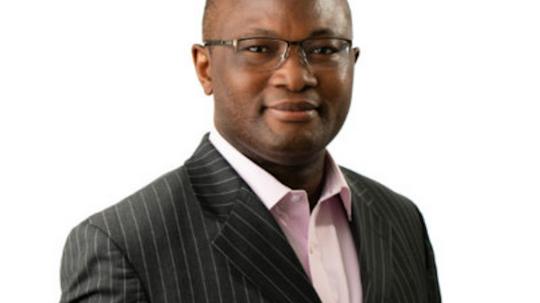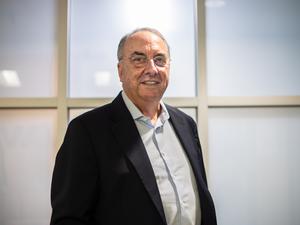
A Baltimore company is working on an alternative to cannabis that will offer another medication option for those struggling with chronic pain or anxiety.
MIRA1a Therapeutics is currently preparing its namesake product, "MIRA1a," for the U.S. Food and Drug Administration approval process next year. The drug binds to the brain's cannabinoid receptors — the same parts of the brain impacted by medical cannabis — in order to to replicate the anti-inflammatory and painkilling properties of cannabis, without the side effects such as increased appetite or anxiety. Commercial cannabidiol (CBD) products have a similar goal as MIRA1a, in that they provide the benefits of cannabis without the high, but as a prescription medication, MIRA1a will be subject to higher quality control standards and safety regulations than over-the-counter CBD, said CEO Jude Uzonwanne.
"No matter where you get the prescription from it's a consistent quality, which is not something you can guarantee when you're looking atover-the-counter cannabis," Uzonwanne said.
Chief Science Officer Adam Kaplin said the compound, which has a similar chemical composition to THC but without one carbon molecule, has a stronger anti-inflammatory and anti-anxiety effect than either THC or CBD. MIRA1a is 30,000% more potent than CBD and 8,000% more potent than THC when it comes to activating the receptors that lead to anti-inflammatory effects, Kaplin added.
Uzonwanne hopes that the compound will be used by those struggling with chronic pain or anxiety as a a non-addictive alternative to opioids, as well as medical cannabis. The access to those two markets gives MIRA1a a huge opportunity for growth, he added, claiming that the medical cannabis space has a market value over $14 billion and pain medication has a market value over $100 billion.
"I don't believe we are a niche product," he said. "We are fairly mainstream, and I anticipate that we will get to a point in the evolution of this compound where people will look upon it as equivalent to ibuprofen."
Along with anxiety and pain treatment, Kaplin, a Johns Hopkins University adjunct professor, said the drug has a unique cognitive enhancement effect that is not seen in traditional medical cannabis. The cognitive effect could lead to MIRA1a being used as a treatment for conditions such as ADHD or Alzheimer's. Kaplin said much of the research is based on work done at Johns Hopkins University. The cognitive enhancement is especially notable as other anti-anxiety medications, such as benzodiazepines, have strong sedating effects.
"Imagine in an elderly Alzheimer's patient, where a lot of the reason why they have trouble with agitation, is because they're in pain," Kaplin said. "As you get older, pain becomes part of life. They are anxious, and they have trouble with cognition. This helps in all three domains, pain, anxiety and cognition. So you can imagine the potential impact."
The company has raised $6.5 million so far in a Series A round that began early this summer and plans to use the funding for animal testing to confirm that its MIRA1a product will be ready for the FDA approval process next year. So far the round has 76 investors, most of whom are family offices and other high net-worth individuals, according to an U.S. Securities and Exchange Commission filing.
Since MIRA1a is not THC or CBD, but an entirely different chemical compound, it would not be classified as a Schedule I drug. The classification as a standard prescription would mean the drug would be legal across the U.S., regardless of local medical cannabis laws, and insurance providers would be able to cover a MIRA1a prescription.
From a business standpoint, MIRA1a is also more likely to receive loans from banks and other sources of funding compared to cannabis companies.
MIRA1a was founded inis affiliated to MyMD Pharmaceuticals, a public company based in Baltimore. Uzonwanne serves on the board at MyMD and MIRA1a's Chief Financial Officer Jim McNulty served as CEO of the company until MyMD went public in 2020. Kaplin is also the chief science officer for MyMD Pharmaceuticals.
Uzonwanne credited MyMD founder Jonnie R. Williams, who also served as one of the lead investors, as one of the key minds behind the science of MIRA1a. Williams has a long history of starting and investing in a wide range of businesses, with some hits and few misses along the way, according to the Washington Post. When he was the CEO of Star Scientific, Williams' gifts to Virginia Gov. Robert McDonnell played a key part in the governor's 2014 corruption trial.
Uzonwanne pointed to MIRA1a's pursuit of FDA approval, instead of simply developing an over the counter-medication, as evidence of the company's faith in the science underpinning MIRA1a.
"We recognize that there is always complexity in life," Uzonwanne said. "But the science around this is so astonishing that we are quite comfortable moving forward."










